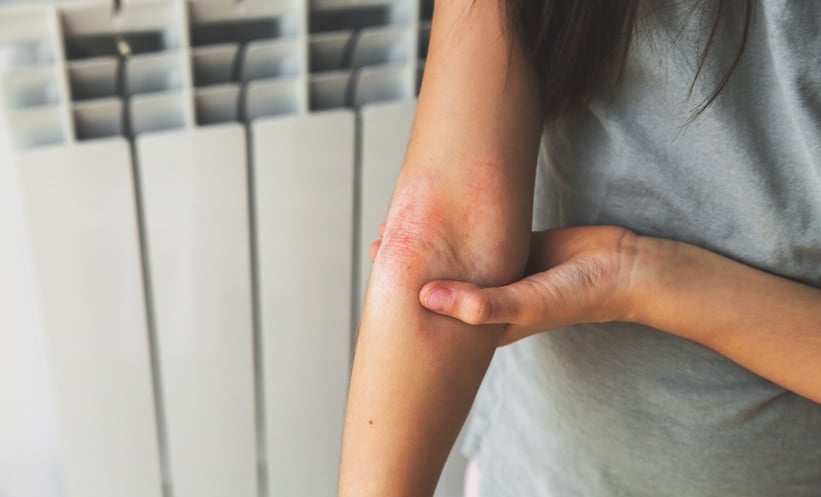CHRONIC pruritus, the hallmark symptom of atopic dermatitis (AD), is driven by a relentless itch–scratch cycle that can persist despite clinical improvements from conventional therapies. New research sheds light on the brain and immune mechanisms fueling this cycle and highlights the potential of integrative approaches to complement standard treatments.
At the core of all AD phenotypes and severities is repetitive itching and scratching, a process often worsened or triggered by psychological stress. Neuroimaging studies comparing healthy individuals and patients with AD have revealed overactivation of the dorsolateral prefrontal cortex in those with the condition. This heightened activity, part of the brain’s itch–scratch regulation network, may disrupt the region over time. Interestingly, parallels with addiction neurobiology suggest that scratching may persist even when visible symptoms improve, underscoring the complex behavioral component of chronic itch.
On a molecular level, bidirectional neuroimmune circuits between the peripheral nervous system and the immune system, combined with dysregulated skin cells, can intensify and sustain AD severity. The study emphasizes the role of neural sensitization in nonhistaminergic, itch-specific pathways that contribute to ongoing symptoms.
The authors propose that integrative therapies, when used alongside pharmacological treatments, could interrupt both central and peripheral mechanisms of chronic itch. Such strategies may help reduce neuroinflammation, pruritus, scratching behavior, psychological stress, and sleep disturbances. They may also improve immune function, skin barrier integrity, and overall patient well-being.
This mind–body connection in AD pathophysiology supports a multidisciplinary treatment model. By addressing the neurological, immunological, and psychological drivers of the itch–scratch cycle, clinicians may offer patients more comprehensive symptom relief and improved quality of life.
Reference:
Steinhoff M et al. Breaking the itch scratch cycle: an integrative approach for atopic dermatitis. Dermatitis. 2025. doi: 10.1089/derm.2025.0021








